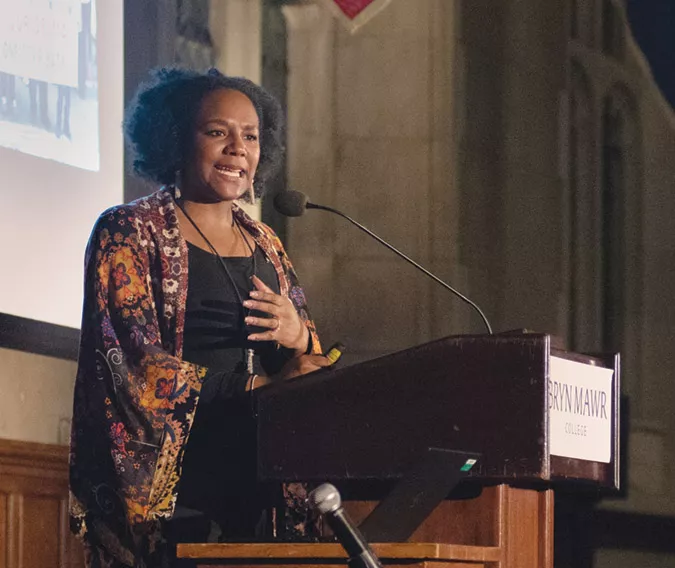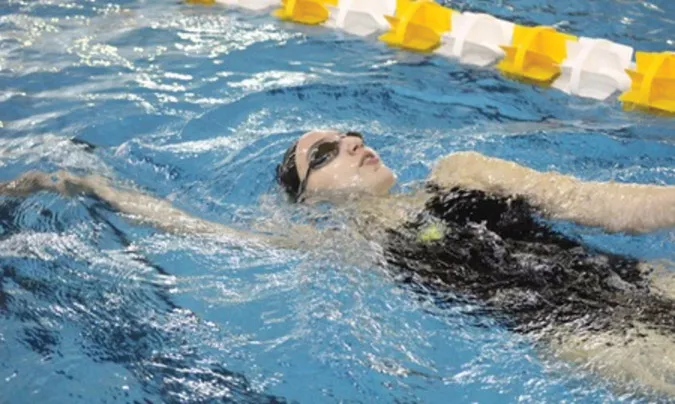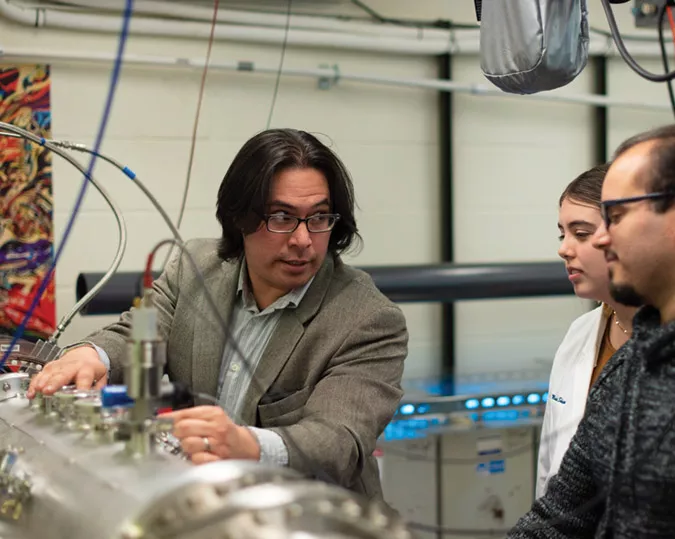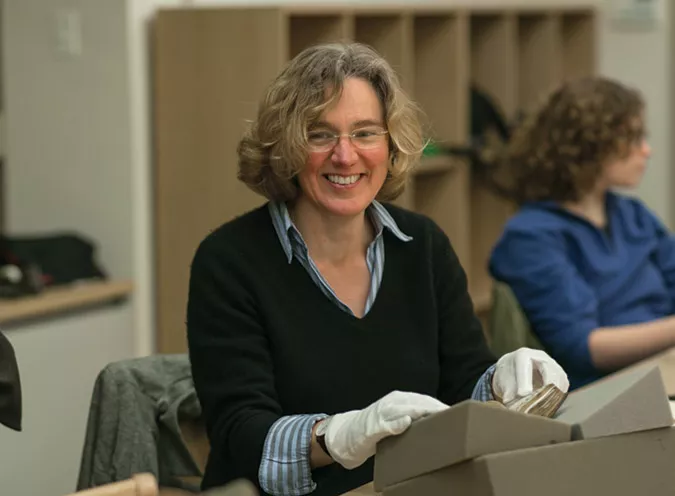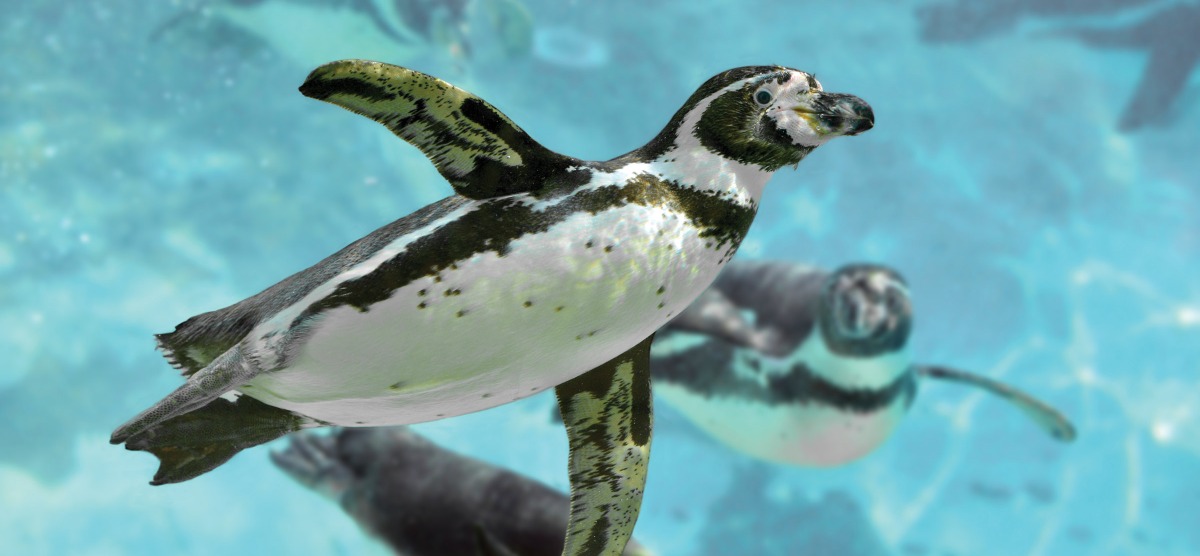
For Starters: Spring 2019
Predator. Activist. Awards. Astronaut.
1. Predator Penguin
The closer to the poles, the less diverse the biota—with the notable exception of warm-blooded marine mammals and birds such as seals, whales, and penguins. A team of biologists—Biology Professor Sydne Record among them—set out to discover why. Their finding: warm-blooded predators are favored where cold-blooded prey are “slow, stupid, and cold.” It’s all due to metabolism, which remains constant for the the warm-blooded creatures but slows for the cold-blooded. In colder water, fish see a decrease in speed, eye movement, and other sensory abilities. With warming oceans, Record adds, the balance of power in these regions will shift. Mammal and bird populations will dwindle, and sharks and other fish will dominate. The study, “Metabolic asymmetry and the global diversity of marine predators,” appeared in Science; the lead author is John Grady, who spent two years as a postdoctoral fellow in Record’s lab.
2. Activist Bree Newsome
In June 2015, following the murder of nine black parishioners at Mother Emmanuel Church in Charleston, Bree Newsome staged a daring act of peaceful protest when she climbed the flagpole at the South Carolina statehouse and pulled down the Confederate Battle flag. Her arrest galvanized public opinion and led to the permanent removal of the flag. In February, Sisterhood* hosted Newsome as this year’s Black History Month speaker. Her action “has never simply been about a flag,” she said, but rather “about abolishing the spirit of hatred and oppression in all its forms.”
3. Water Mark
“Our student-athletes come to Bryn Mawr College in order to challenge themselves in the classroom,” says Owls head swim coach Pat McDevitt, “while competing at the highest levels of our sport.” That truth was confirmed this academic year as the Owls swim team was named to the Scholar All-America Team by the College Swimming and Diving Coaches Association of America. To earn the honor, teams must post a GPA of 3.0 or higher in the fall semester and have a roster of 12 or more student-athletes. Bryn Mawr easily surpassed that requirement, as the Owls put together an impressive 3.54 team GPA—the highest of any Centennial Conference women’s team and the 28th highest of any of the other 171 programs to earn the status, putting Bryn Mawr in the top 82 percent of these teams.
4. Prof Gets Early-Career Award
Bryn Mawr Physics Professor David Schaffner, whose research focuses on plasma physics, has been awarded the Presidential Early Career Award for Scientists and Engineers. The award, given annually by the National Science Foundation, recognizes early-career scientists conducting innovative research and engaged in community service through scientific leadership, education, or outreach. Schaffner recently opened a new plasma lab dedicated to the study of plasma physics, turbulence, and fusion energy.
5. Astronaut Lands at Commencement
Dr. Mae C. Jemison, who as a NASA astronaut was the first African American woman in space, delivered the Commencement address to the Class of 2019 and degree candidates from its two graduate schools in May. “Throughout her life, Mae Jemison has defied expectation,” says President Kim Cassidy. “She is a physician and astronaut, scientist and dancer, professor and entrepreneur. Her career offers an inspiring example to our students of the power of defining their own sense of possibility and direction.” Jemison served six years as a NASA astronaut. She became the first African American woman in space on September 12, 1992, as a mission specialist aboard the space shuttle Endeavour. Before joining NASA, she was the Area Peace Corps Medical Officer for Sierra Leone and Liberia and a general-practice physician in Los Angeles. After leaving NASA, she was a faculty member at Dartmouth University from 1995 to 2002.
6. Understanding Suicide
Recent data has delivered the disturbing news that suicidal behaviors are on the rise among children (some as young as five) and adolescents. Carolina Hausmann-Stabile wants to understand why. A professor at the Graduate School of Social Work and Social Research, Hausmann-Stabile studies pediatric suicidal behaviors, with a particular emphasis on Latinas—a group more likely to attempt suicide than their non-Hispanic peers. To date, Hausmann-Stabile’s work has helped to identify some of the issues that explain this phenomenon and to develop culturally competent services for Latina teens. In her most recent contribution to the field, she helped found The Youth Suicide Research Consortium. The interdisciplinary group, composed of researchers from 22 institutions nationwide, aims to increase diversity in suicide research among children, adolescents, and young adults.
7. A Banner Year
Professor of Greek, Latin, and Classical Studies Catherine Conybeare has been named a 2019 Guggenheim Fellow for her work on a study titled Augustine the African. Conybeare was among 168 scholars, artists, and writers selected from a group of almost 3,000 applicants for the fellowship, which is awarded annually by the John Simon Guggenheim Memorial Foundation. “The hypothesis behind my project,” Conybeare explains, “is that the Africanness of Augustine of Hippo is pervasively significant to his work, his priorities, his modes of expression, and exegesis.” It has been a banner year for Conybeare, who was also recently elected to a Visiting Fellowship at the University of Oxford’s All Souls College and named a 2019 American Council of Learned Societies (ACLS) Fellow.
Published on: 05/30/2019
